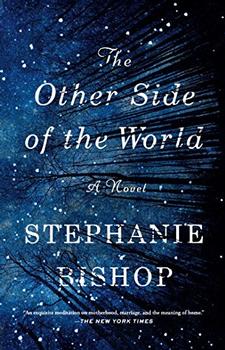Reading Guide Questions

Please be aware that this discussion guide will contain spoilers!
- "Is it easier to love a child, she wonders, than it is to love a wife?" (pg. 150) How do you think Henry and Charlotte's relationship has been changed by the arrival of children? How might Charlotte's sense of failure as a mother have affected her relationship with Henry?
- Henry's ethnicity is never discussed directly between the couple. Why do you think this is? Do you think Charlotte has any understanding of Henry's experience as an Anglo-Indian in England, and then in Australia?
- The novel opens with the epigraph, "Nostalgia . . . is a longing for a home that no longer exists or has never existed." (Svetlana Boym, The Future of Nostalgia). Whether as migrants or just looking back over our lives, how clearly do we see past times and places? How does this affect our attitude towards the present? For what do you feel nostalgic?
- "He wonders what it would be like to belong somewhere and never doubt it. To not be constantly pestered by the knowledge of your own foreignness." (pg. 162) Does the book's depiction of the experience of migration echo or change your own viewpoint on this issue? How would you cope if you emigrated to the other side of the world, or to a very different country? What advantages and disadvantages do you see to the experience of being a migrant? If you are an immigrant, how has the experience changed you?
- Charlotte wonders: "Would she have enough love for a second child? Would it mean giving up some of the love for her first? How mad that seems now—the foolishness of not seeing, not knowing, that such love simply doubles, triples, quadruples as required." (pg. 130) What do you make of this comparison between love for children and love for a country? Do you agree that "such love simply doubles, triples, quadruples as required" or do you think some "lessening" of love is inevitable?
- "How right that our experience should evolve and that our children's experience should move in ever wider circles than our own," thinks Henry. (pg. 107) How do you feel about this idea? Has this been your own and your family's experience?
- Weather plays an integral role in the book. Both Henry and Charlotte struggle with living in a climate different from the one in which they spent their childhood, and long for weather that feels familiar. How much do you think our experience of the weather affects our sense of belonging? How much do you think our climate "set point" can be changed by later exposure to different environments?
- Workplace discrimination and bullying are today recognized as significant issues. What options do you think Henry had for responding to Collins's treatment of him in 1965? What would you have done in his place?
- What do you think of the newspaper clipping on marriage that Charlotte's mother gives her? Do you think Iris is being hypocritical, or do you think she believes that following this advice will make Charlotte happy? To what extent do you think our approach to marriage and parenting can reflect our own sense of personal failure?
- At different times we see Charlotte ignoring, smacking, and abandoning her children. How did you feel toward her during these scenes?
- Henry says that he realized the truth when he dreamed about Charlotte touching Nicholas's face. What do you think he understood in that moment? Do you believe that dreams can reveal truths our conscious mind can't yet see or face? Has this happened to you?
- What do you think are the main reasons behind Charlotte's decision to leave Australia? How much do you think she understands herself of this decision? What do you think she is planning to do when she returns? Does she see it as permanent or temporary?
- What decision do you think Charlotte has come to at the end of the book? Why? How did you feel about the way their story ended?
Enhance Your Book Club
- Think about your parents' involvement in your life. Focus on a decision they made that affected you and try to understand their reasoning.
- To inform the novel, Stephanie Bishop has drawn on aspects of her grandparents' experience as migrants to Australia. How significant are family stories in your own life? To what extent do they focus on your ancestors' experiences of migration? Write a fictional story in which your ancestor is the main character.
- Imagine the life of Charlotte and Henry's children after the book ends. How do you think they turned out?
Unless otherwise stated, this discussion guide is reprinted with the permission of Washington Square Press.
Any page references refer to a USA edition of the book, usually the trade paperback version, and may vary in other editions.

 Book Reviewed by:
Book Reviewed by:





